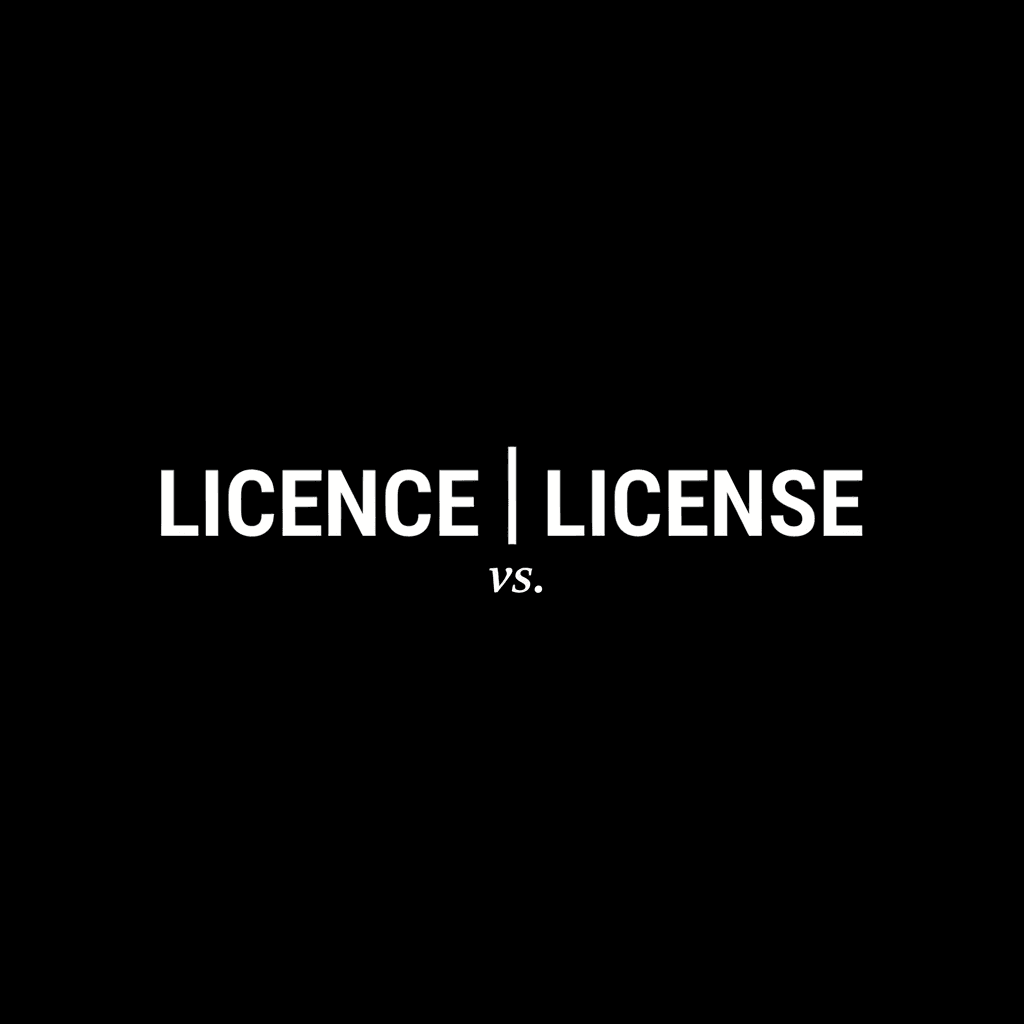Licence vs. License: What’s the Difference?
 Both licence and license refer to the same concept — official permission to do something — but they’re spelled differently in British and American English, depending on the part of speech.
Both licence and license refer to the same concept — official permission to do something — but they’re spelled differently in British and American English, depending on the part of speech.
Let’s break it down.
In British English
In the UK (and countries that follow British spelling, like Australia, Canada, and Singapore):
- Licence is the noun (a thing).
- License is the verb (an action).
Examples (British English)
| Part of Speech | Correct Word | Example Sentence |
|---|---|---|
| Noun | licence | I need to renew my driver’s licence. |
| Verb | license | The government will license new restaurants soon. |
More Examples
- She applied for a fishing licence.
- Do you have a licence to sell alcohol?
- The board decided to license the company’s technology.
- This shop is fully licensed to serve drinks.
- His pilot’s licence expired last month.
🧠 Memory Trick (UK):
“Noun = C (licenCe)”
“Verb = S (licenSe)”
Think: C for “certificate”, S for “supervise an action”.
In American English
In the U.S., spelling is much simpler — both noun and verb forms are spelled license.
Examples (American English)
| Part of Speech | Correct Word | Example Sentence |
|---|---|---|
| Noun | license | You need a driver’s license to operate a car. |
| Verb | license | The city will license new taxi drivers next month. |
More Examples
- I forgot to renew my license this year.
- The company is licensed to use that software.
- He showed his license to the officer.
- They plan to license their product worldwide.
- Every doctor must have a medical license.
🧠 Memory Trick (US):
America likes things simple — license for everything.
Quick Comparison Table
| Region | Noun | Verb | Example |
|---|---|---|---|
| British English | licence | license | The company will license its brand. |
| American English | license | license | He lost his driver’s license. |
Common Phrases
| Phrase | British | American |
|---|---|---|
| Driver’s licence/license | driver’s licence | driver’s license |
| Business licence/license | business licence | business license |
| Licence/license to operate | licence to operate | license to operate |
How to Remember the Difference
👉 In British English, remember:
Noun → C (licence), Verb → S (license).
👉 In American English, remember:
Always use license — it covers both.
💡 Memory Trick:
“C” for Certificate, “S” for Service — you get a certificate (noun) but serve with a license (verb).
Why It’s Easy to Mix Up
Because they sound identical, spellcheckers sometimes auto-correct one form to the other — especially if you switch between American and British writing.
That’s why Humanizey helps ensure consistent regional spelling in AI-generated text, adapting automatically for UK or US audiences.
FAQs
1. Is “licence” ever correct in American English?
No. In U.S. English, license is used for both the noun and verb.
2. Is “license” wrong in the UK?
Not necessarily — it’s correct only as a verb, not as a noun.
3. Which form should I use in Canada or Australia?
Most follow British rules: licence (noun), license (verb).
4. What about “licensed” and “licensing”?
Those always use S — the verb form — in both UK and US English.
Practice: Choose the Correct Word (“Licence” or “License”)
(Answers are listed at the end.)
- She applied for a driving ___.
- The restaurant is fully ___.
- The government plans to ___ more vendors.
- He showed his fishing ___.
- The council will ___ all new taxis.
- You must have a business ___ to sell products.
- The new bar was ___ last month.
- The shop needs a liquor ___.
- They are trying to ___ their brand internationally.
- His pilot’s ___ was suspended.
Answers
- licence (UK) / license (US)
- licensed
- license
- licence (UK) / license (US)
- license
- licence (UK) / license (US)
- licensed
- licence (UK) / license (US)
- license
- licence (UK) / license (US)
